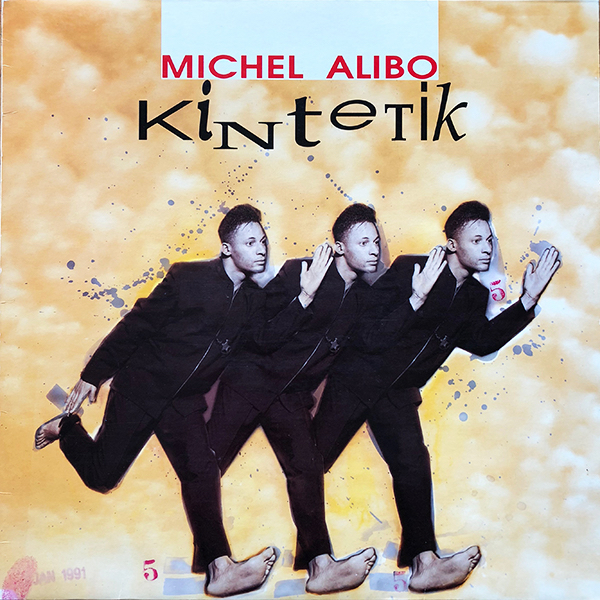
Going back into the well of zouk music. It’s not often I tap into it because I’d be afraid to turn this whole blog into a zouk-only thing…and who knows who’d be into that? Especially, around this time of the year. However, as long as I have your interest in “bass” music piqued — let’s show you the brighter side of this instrument. One that actually functions in this between-season period: Michel Alibo’s Kintetik.
Of Afro/Latin, Michel was born in Martinique but raised in Paris in the late ‘50s, picking up the bass, teaching himself jazz and world music while playing along to early favorites from the Caribbean and fusion world. An early stint (we’re talking at the tender age of 16!) with Mr. Soul Makossa himself, Manu Dibango, introduced him to the sounds of Africa and the rumba grooves of Cameroon (among many other regions), expanding his already impressive bass vocabulary sevenfold.

Sometime in the mid ‘80s, this young upstart hooked up with other French jazz bofos to create one of that country’s most notable jazz-funk crews: Sixun. It was in that group that European audiences caught (through their ears) the first intricate slap bass technique on his self-dubbed “Alibo-Bass Machine” or Alibass. A rarity in tone, Michel Alibo found a way to fuse his Caribbean and African roots with the wiggier side of European modal jazz and American funk, all in his one instrument. However, for Michel, “heady” jazz wasn’t all that was on his mind.
Finding influence from the electronic sounds coming from zouk musicians (as heard in the ex-pat pirate radio stations of Paris) and American urban hip-hop, he began his first stabs at finding his own niche as a solo artist. His 1986 self-titled debut was the startling beginning.
Leaning heavily on the sand-sweeped, nostalgic, sounds of the Caribbean, his audience got to hear the gorgeous sweet vocals of Michel. Laying back on the bass, he frequently would use exploratory synth pads to give zouk a wonderful meditative-ness to it that felt more appropriate than the heavy, highly complex zouk favoured by the clubs. It was “heady” zouk, done in a different way.
It wouldn’t be until six years later that the world got to hear whatever Michel had stored in his demo deck. Scaling back a lot of the all-star cast that helped Michel debut make waves, on Kintekik feels like a much more personal record. Taking nearly all control of songwriting and performing duties allowed Michel to experiment fusing zouk with other styles that he’d explored piecemeal elsewhere as a guest on session gigs.
“Quintessence” and “Synthetic”, that’s what Kintetik tried to fuse. Michel’s acoustic and electric side, his African influences with the equally gigantic spheres of Latin, jazz, and West Indian music.
On songs like the title track, “Oupélanmou (Célanmou)”, and “Décolé (Pacolé)”, we still hear Michel’s refined uptempo zouk style, as heard in some of his Sakiyo work, permeate throughout Kintetik.
The highlights, though, are the tracks like “Siwoupé (Dadedoo…)”, “Chayé Mwin”, and “Fou, Jaloux” where he fuses a worldly tropical sound via Linndrum, Alibass, and multi-tracked vocals in a way that’s positively forward-thinking. This is funky, complex, but yearning and light. The common man can instantly understand what Michel was driving towards, in his own voice. The constant pull of the rhythm in each feels like the gentle waves that touch all those beachheads of influence Michel kept his ear open to.
It’s unpretentious enough that many of the complicated layers get lost in all the gradients of its sunny vibes. Then again, in times like these isn’t that all one needs to get by?
